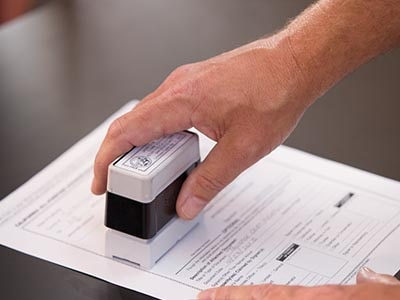Debunking Notarial Job: Streamlining the Duty and Value of Notaries
In the elaborate web of legal documentation and confirmation, notaries stand as pillars of assurance and credibility. Their duty, typically shrouded in enigma for lots of, carries considerable weight in making certain the credibility and honesty of important records. As guardians of validity and reality, notaries play a critical component in our culture, yet their work is not always completely comprehended. By unwinding the complexities losing and surrounding notarial techniques light on the relevance of their acts, a more clear understanding emerges of the vital role notaries play in promoting the material of contractual and legal contracts.
The History of Notarial Job
Just how did notarial job develop over time to come to be an integral component of legal and organization transactions? The background of notarial work dates back to ancient human beings, where scribes played a crucial function in tape-recording vital information and authenticating records. As societies progressed, the need for an extra formalized system to guarantee the validity of agreements occurred. This led to the growth of notaries, people designated by the state to act as objective witnesses in lawful matters.
Throughout the Middle Ages, notaries got prominence in Europe, with their features expanding to include preparing lawful files, licensing signatures, and preserving records. The surge of international trade even more stressed the importance of notarial operate in confirming agreements and contracts across boundaries.
In the contemporary period, notaries remain to play a vital function in legal and service purchases by validating identifications, validating the credibility of papers, and protecting against fraudulence. Their function in accrediting the credibility of arrangements adds a layer of security and depend the ever-evolving landscape of commerce and legislation.

Obligations and Duties of Notaries
The historic advancement of notarial work from old human beings to the modern-day age has actually formed the unique responsibilities and responsibilities that notaries promote in legal and company purchases today. Notaries play an essential function in confirming the credibility of papers and the identity of signatures. Among their main responsibilities is to witness the signing of essential records, such as contracts, wills, and actions, to make certain that all events are entering right into agreements purposefully and voluntarily. Notaries additionally confirm that notaries are of sound mind and not under duress or browbeating.
They certify copies of original files, supplying assurance to organizations that the copies are real replicas of the originals. Overall, the responsibilities and obligations of notaries are crucial in protecting the stability and legality of different records and purchases - Conveyancer.
Notarial Certificates and Signatures
Exhibiting thorough interest to information, notarial certificates and trademarks offer as crucial components in verifying the credibility of legal records. Notarial certifications normally contain important info such as the date of registration, the names of the signatories, a description of the record, and the my latest blog post notary's main seal. These certificates supply a clear record of the notarial act, ensuring that the record can be quickly determined and traced back to the notary that looked after the process.
Signatures play a crucial function in notarial work, as they symbolize the contract and authorization of the events entailed. Notaries carefully witness the signing of documents to confirm the identity of the signatures and validate that they are authorizing of their very own this hyperlink complimentary will. By affixing their official seal and signature to the record, notaries license that the required treatments have been complied with which the file is legitimate and enforceable.
Essentially, notarial certifications and trademarks are the trademark of credibility in legal deals, supplying guarantee to all parties included that the records are legitimate and binding.
Relevance of Notarial Acts

Notarization Refine Described
Explaining the notarization process offers quality on the essential actions associated with verifying lawful records. The notarization process generally starts with the individual presenting the record to a notary public. The notary then verifies the endorser's identification via acceptable identification approaches. As soon as the identification is validated, the notary makes certain that the specific authorizing the record does so voluntarily and without any kind of browbeating.

Final Thought

Notarial certificates typically contain crucial details such as the day of registration, the names of the notaries, a description of the record, and the notary's main seal. These certificates provide a clear record of the notarial act, guaranteeing that the file can be easily determined and traced back to the notary that oversaw the procedure.
By attaching their official seal and signature to the paper, notaries license that the essential treatments have been followed and that the paper is enforceable and valid.
By confirming the identity of the signatures, verifying their determination to enter right into the arrangement, and licensing the date and location of the signing, notaries play an important function in supporting the legitimacy of legal documents.After the document is signed, the notary will certainly attach their official seal or stamp onto the record.
Comments on “Deceased Estate Management: Taking Care Of Properties and Matters After Passing”